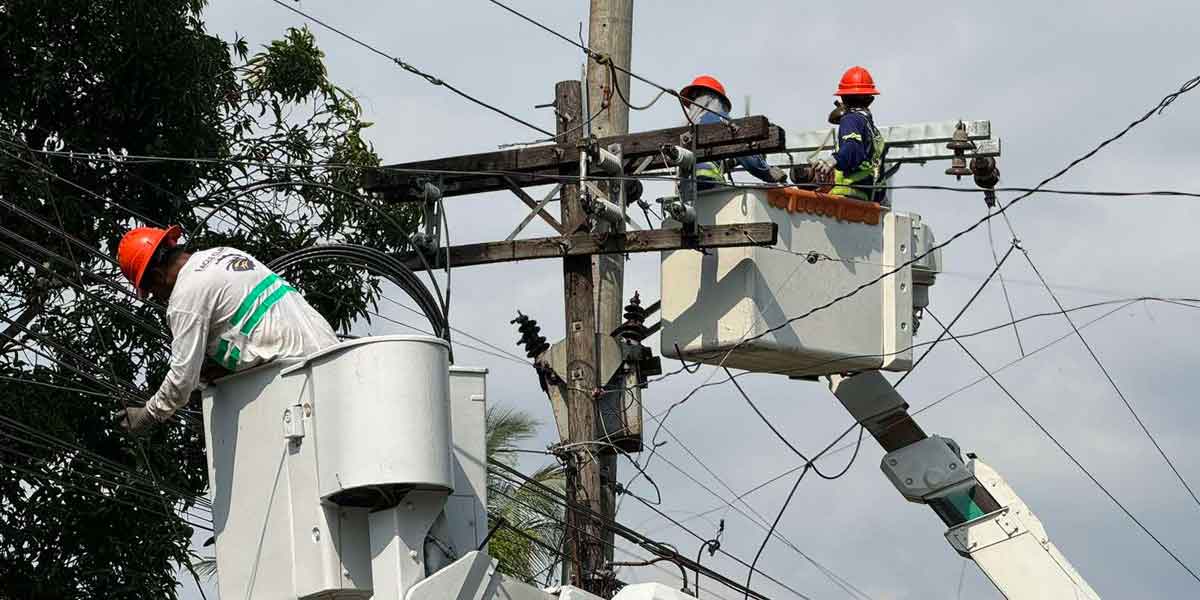 By Brian M. de la Cerna
By Brian M. de la Cerna
Last August 2018, President Rodrigo Duterte signed Republic Act No. 11055 otherwise known as the Philippine Identification System Act to rationalize the national identification system establishing a single identification system for all citizens and resident aliens, promoting a seamless service delivery, enhancing administrative governance, reducing corruption, and simplifying of public and private transactions by all citizens and resident aliens. Its implementing rules and regulations was promulgated by the Philippine Statistics Authority on October 5, 2018.
Biometric national identity card measures are becoming customary across the globe and are also deemed as vital to a nation’s internal affairs. Many believe that through this the state would be able to address fight terrorism, illegal immigration, unlawful activities, and most importantly enable the fast implementation of social service delivery mechanism.
Applying for a national ID is not mandatory, but technically speaking people who do not want to get one will be at a disadvantage when doing official business both in the private and public institutions. At this time around, one cannot leave home without an ID card.
The national ID system of the country shall be called the Philippine Identification System or PhilSys. It is meant to provide Filipino citizens and resident aliens a single and unified proof of identity. Needless to say, PhilSys will become the country’s central identification platform.
Citizen refers to a Filipino citizen, as defined in the constitution, including those with dual or multiple citizenships in accordance with Republic Act No. 9225, otherwise known as Citizen Retention and Re-acquisition Act of 2003. While resident alien refers to an individual who is not a citizen of the Philippines but has established residence in the Philippines for an aggregate period of more than one hundred eight days.
In this ID system, upon birth, or registration a randomly generated PhilSys Number (PSN) will be given to the registrant. It shall not be predetermined or preassigned to any individual, neither one is allowed to choose his or her own PSN. The PSN is a permanent and unique identification number: thus, one’s number for life. One’s record in the PhilSys shall be considered as sufficient proof of identity.
This tamper-proof ID is a non-transferable card. The PhilID shall be the physical medium issued to convey essential information about the person’s identity containing on its face the PSN, full name, sex, blood type, marital status (optional), place of birth, a front facing photograph, date of birth, and address. All the mentioned information featured in the PhilID should match with the registration information in the PhilSys.
The PhilID will also house a smart chip that contains distinct information associated with the individual’s biometric, iris scan, facial image, and if necessary, other identifiable features. It will also contain a QR code as safeguard for data privacy and security, prevention against the proliferation of fraudulent or falsified identification cards.
The initial application and issuance as well as the renewal of PhilID for all citizens shall be free of charge.
Critics were raising concerns that the national ID will pose threats to the data privacy and security of Filipinos. Others opposed this landmark legislation noting that the government might abuse the identification system and as well as will be utilized for control and repression.
As stipulated in the law, the Philippine Statistics Authority, together with the technical assistance of the Department of Information and Communications Technology, shall implement reasonable and appropriate organizational, technical, and physical security measures to ensure that the integrity of the PhilSys as well as the information gathered for the PhilSys, including information gathered in the PhilSys Registry, is protected from unauthorized access, use, disclosure, and against accidental or intentional lose, destruction, or damage.
The PSA is also mandated by the law to designate a separate Data Protection Officer for the PhilSys.
Basically the PSA is the sole agency that will have access to the individual’s information. The PSA cannot disclose any information to a requesting party without the consent of the ID holder, except in either of the following circumstances: a) compelling interest of public health or safety, b) upon the order of a competent court. The owner will be then notified by PSA within 72 hours of the fact of such disclosure to the requesting party.
In a 2018 survey conducted by the Social Weather Stations, following its ratification by both chambers of Congress, and before President Duterte signed it into law, Filipinos were supportive of the Philippine Identification Systems. 73% of adult Filipinos approved of the proposal to make a single and unified ID. 3 out of 5 say that the National ID system will be a big help to them and 61% trust the government in protecting the individual’s private information.
One must also realize that the information to be gathered for the PhilSys is already present in other government-issued IDs such as passports and driver’s licenses. The difference between this national ID with the rest of the government-issued IDs is that it has a smart chip which contains the person’s biometric, iris scan, and facial image reception to eradicate identity theft.
The sole purpose of this ID system is to ease transactions and provide convenience for all. Currently, we have separate IDs for SSS, PhilHealth, and more under different government agencies, because sometimes when transacting official business in different offices such requires 2 valid IDs: preferably government-issued. However, with the national ID, various public and private entities will no longer need other IDs to verify a person’s identity. Verification can already be done easily through the automated system which will materialize upon the implementation of PhilSys. Think of easing your way in when opening for a bank account, applying for services and benefits offered by both private and public insurance corporations, and admission to any government healthcare institution.
The PSA made it also clear that PhilSys will not take the place of existing functional IDs that have their own respective purposes. For instance, a driving license is proof that an individual is eligible to drive, further functional IDs such as this will remain within the authority of the issuing government agency.
Applicants must register personally in any of the following registration centers that have the necessary facilities to capture the information required to be contained in the registry. This includes a) PSA Regional and Provincial Offices, b) Local Registry Offices, c) GSIS, d) SSS, e) PhilHealth, f) HDMF, g) COMELEC, h) Philippine Postal Corporation, and I) other government agencies and GOCCs as may be assigned by the PSA. The PSA shall provide the necessary facilities, manpower, equipment, registration system, and resources to carry out the registration in the registration centers.
This national ID is one of the priority agenda by the Philippine government. However, many people are still concerned that the introduction of the biometric national identity card might breach citizens’ right to privacy and confidentiality. It would allow the government to misuse the information of its citizens in its own will. There is still a problem of confidence in the reliability and safety of the system.
During the distribution of the Social Amelioration Program assistance to 18 million low-income families nationwide affected by the coronavirus disease 2019 pandemic, the Department of Social Welfare and Development had encountered delays.
Once the PhilSys takes place, government agencies like DSWD will have a proper identification of clients and will help eliminate misinterpretation and duplication of claims and assistance. PhilSYs will pave the way to further systematize targeting, facilitate identification of vulnerable groups and for each concerned agency to proactively develop and deliver social protection programs, and strengthen financial inclusion.
Moreover, this national ID will streamline and automate the process. And eventually, everyone will benefit from it in so many, many ways. As mandated by law, it will help tackle the exhausting bureaucratic processes both in public and private transactions. It will also assist service agencies in public and private sectors to verify the identity of the service recipients in a smooth and timely manner. Truly, that if anyone who does not have an identity card might dip in deep water with regard to access to government or even private services. So it is really high time to expedite the implementation of RA 11055.
This national ID is for all: a medium that will make our lives easier all around.




















